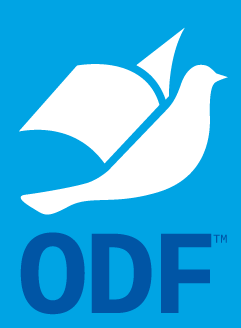Olliance Group and DLA Piper last week hosted the third Open Source Think Tank “The Future of Commercial Open Source”, bringing together industry leaders to brainstorm potential solutions to the issues that commercial open source is facing today.
 This is the open source season by Philisopher Queen
This is the open source season by Philisopher Queen
The Open Source Think Tank is the greatest networking event in the open source arena, gathering about 130 professionals ranging from CIOs and open source firms’ CEOs, to consultants, analysts and VCs.
Andrew Aitken, Olliance Group CEO, kicked off the meeting with some opening remarks, reporting about the lack of resources – as later confirmed by many CIOs demanding for a better vendors’ support – and foreseeing an increase in consolidation over the next years, prediction confirmed also by Larry Augustin.
Andrew in his speech mentioned also the fragmentation of open source, an old mantra that miss the value of the Group Forming Networks, also known as Reed’s law:
The utility of large networks, particularly social networks, can scale exponentially with the size of the network.
The number of mature open source projects and developers is raising daily, last but not least at the Google Code site, and many of them answer vertical markets‘ needs. Chris Anderson keynote, on the second day, remarked the importance of the so called “long tail”, and introduced us to Chris’s last adventure: open source hardware and its still obscure licensing.
Many CIOs during their panel sessions screamed against license proliferation, a term referring to the so called “explosion of choice” in open source licensing. Why that? I think that Larry Rosen was right telling them that it is plenty of proprietary licenses, and I tried to figure out why all this concern for open source licensing. Talking with Colin Bodell, Amazon VP Website Applications Platform, I confirmed the idea that the big guys cook their own meal. Basically they don’t need to spend time and effort with any procurement process to acquire (by downloading) open source software, but they have to ask the legal department. I see the problem, though I understand that SMEs are not affected by this, while they experience a much bigger problem with open source software selection.
Europe and North-America are definitely two different markets: Europe look for solutions, while USA ask for products. John Newton, Alfresco’s CTO, once speaking about these differences told me:
This is a phenomenon that I have observed for over 20 years. It may have something to do with the proximity of US companies to the software developers, their earlier development of software, a cultural willingness to experiment with business, or just general risk taking.
After speaking with few North-American CIOs I believe John is right, but that is definitely not the only difference
European public administrations demand for open source, while in North-America customers are mainly medium to large enterprises. It is not by casualty that I didn’t meet any representatives of North American Public Administrations at the Open Source Think Tank, I think. On the contrary every Italian open source conference see little participation of Manufacturing or Financial CIOs, but it is packed by people from public institutions.
I really enjoyed brainstorming sessions, and I asked Cristopher Keene, CEO of Wavemaker, formerly known as Activegrid, to summarize our first session, when we were asked to brainstorm on the following question: Does the open source industry need another organization to represent it’s increasingly broader commercial interests?
The idea we developed at the open source thin tank was to create a council of CIOs who use open source products within their organizations.
The goal of this council would be to educate the open source community about business issues which make it hard for CIOs to adopt open source, such as licensing complexity and product completeness. The council could also drive an important dialogue around licensing requirements and patent indemnification risks that are holding the industry back now.
One way to start this council would be as an outgrowth of Open Source Think Tank conference. CIO attendees of this conference could identify what they see as the top three barriers to open source adoption today and then work over the next year to articulate what they would like to see vendors doing to overcome these barriers.
Christopher rightly suggested to connect to Jerry Rosenthal, Open Invention Network CEO, but we eventually ended missing the opportunity for the time being. I think that the idea we discussed for about an hour would merit to be investigated further, considering also the possibility to create different councils for different market segments. Customers’ dimensions could refine matching criteria to bring CIOs under the same umbrella.
During brainstorming session I happened to talk with Richard Daley (Pentaho), Erica Brescia (Bitrock), Mike Milinkovich (Eclipse), Brian Gentile recently appointed as Jaspersoft CEO, Larry Rosen, Mark Brewer (Covalent, now SpringSource), and many others.
Beyond brainstorming sessions the Open Source Think Tank was a great chance to meet in person the who’s who of open source. I found myself chatting with our open source hero MÃ¥rten Mickos, congratulating him up on his honors while drinking a glass of Californian wine (call me conservative, I still tend to prefer Italian ones!). I happened to talk with so many interesting people that I am afraid to forget mentioning some of. Sanjiva Weerawarana (wso2) and I spoke about OSI and how open source is growing in Asia. I finally had a chance to meet in person Sam Ramji, Robert Duffner and Bryan Kirschner to talk about Microsoft open source strategy. I spent an evening with Ross Turk, and I enjoyed meeting Philippe Cases (partechvc), kindly introduced to me by MÃ¥rten. I had breakfast with Raven Zachary (the 451 Group), and we planned to meet up in Europe soon to talk more. A small chat with Kim Polese (SpikeSource), kindly introduced to me by Sam during the wine tasting around the Napa Valley, and I also had a short but interesting spot with Larry Augustin just before Chris Andersen’s keynote. I really enjoyed speaking with Dave McAllister (adobe) about open standards and with Dominic Sartorio about OSA, I definitely need to report about all these IT conversations in a series of postings.
I had great time with many sipping some wine, among them: Joseph A di Paolantonio, Aaron Fulkerson (MindTouch), Roger Burkhardt (ingres), and I was happy to meet few other European actors: Tjeerd Brenninkmeijer (Hippo), Alexandre Zapolsky (Linagora) , Bertrand Diard (Talend). Talking about Europe I had also the opportunity to discuss with Olliance people about an Italian Open Source Think Tank, let’s see if it could eventually happen..
An open question: Why I didn’t see any Solution Providers, but Accenture?
Technorati Tags: commercial open source, think tank, open source think tank, olliance, AndrewAitken, CristopherKeene
Related posts: Chris Coppola – Chris Keene – Chris Marino

 The ODF logo, courtesy of
The ODF logo, courtesy of  This is the open source season by
This is the open source season by
Reply